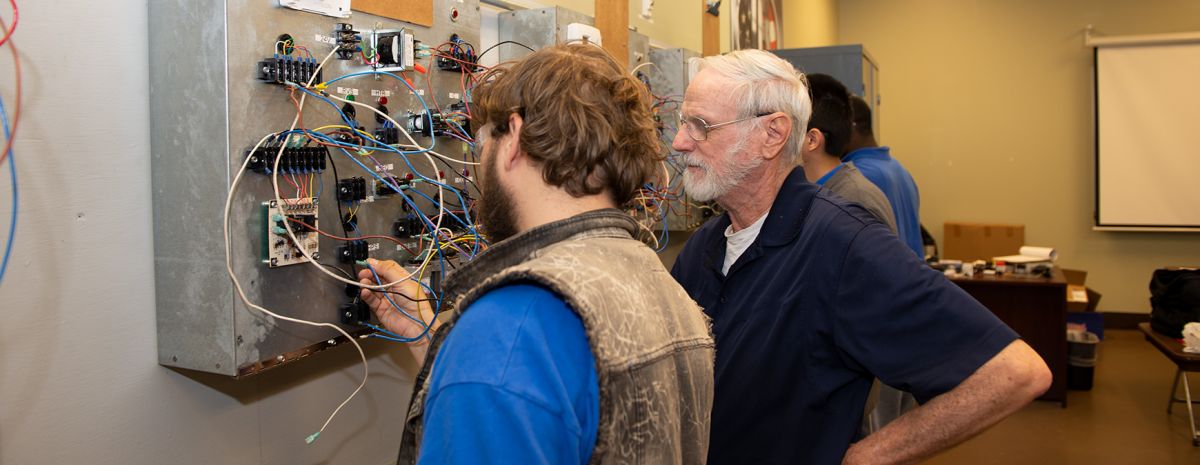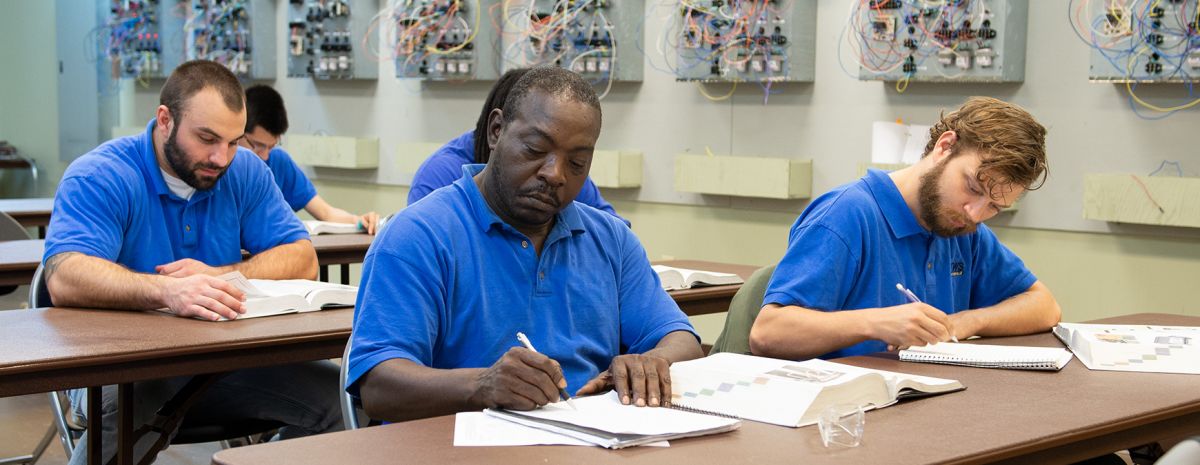RSI is a Great Training Option for Everyone
Learn more about how we can prepare you to advance your career.
The field of HVAC is expected to need about 19,000 more mechanics and installers over the course of the next decade, according to the United States Bureau of Labor Statistics (BLS).1 Since HVAC equipment has gotten more complex over the years, many employers prefer job applicants who have some level of experience already.
Taking HVAC classes is one way to gain valuable hands-on experience with industry methods, equipment, and standards. Here’s an overview of the types of classes you might encounter while learning HVAC.
High School Shop Classes
If you are still in high school, consider taking some vocational or shop classes, if they are available to you, such as plumbing or electrical. This base of knowledge can help you get a head start for the HVAC career path. However, this experience isn’t necessary to enroll in a vocational program.
Math and Physics Classes
To be an HVAC technician, a baseline level of mathematical understanding is required. For example, you will need to be able to read tables, plug data into formulas, and use basic math principles like addition, subtraction, division, fractions, decimals, squares, and roots.
However, unless you are intent on becoming an engineer, a foundational understanding of algebraic concepts and formulas will likely be enough for you to perform HVAC work as a technician.3 You will only need advanced math knowledge like calculus if you are interested in becoming a mechanical engineer or designer.
Get Started on the Path to a New Career
Fill out our form to learn how we can help you change your life.
Other practical, mechanical sciences would provide a great background to HVAC training, as well. Some experience with physics, chemistry or other physical sciences could be helpful.
Vocational Classes
A high school diploma or GED is typically all the formal education that’s required to begin an HVAC training program. After possibly taking basic high school math, science, or shop classes, the next step for HVAC training would be to take specialized vocational classes geared towards your career interest. Some of the classes may be generalized across the HVAC field, and some may be focused around a specific career path.
Here are some examples of HVAC classes offered by The Refrigeration School (RSI), a vocational institution located in Phoenix, Arizona:
Fundamentals of Refrigeration
Refrigeration Technologies is one type of specialization within the HVAC field that could lead to jobs such as Refrigeration Service or Installation Technician. Further specialties might include working in the restaurant, retail, or commercial industries. The Fundamentals of Refrigeration class introduces students to the refrigeration cycle, including the mechanical and physical properties of refrigerants, refrigeration equipment, technician tools, and safety practices. This is a class that is offered for both the Refrigeration Technologies program and the Electro-Mechanical Technologies program at RSI.
Fundamentals of Electricity
In this class, students learn basic electrical concepts related to the field of HVAC. Topics include schematic wiring, meter usage, safety processes, and dual voltage systems. This class is offered for both the Refrigeration Technologies program and the Electro-Mechanical Technologies program, as well as the Electrical Technologies and Electrical Applications programs.
Comfort Systems – Residential and Commercial
Understanding heating and cooling systems is essential to working in the field of HVAC. HVAC classes provide students with a basis of understanding for heating and air conditioning systems. The Comfort Systems classes at RSI are split into Residential and Commercial. In the Residential class, students learn about split systems, heat pumps, air conditioners, gas furnaces, and evaporative coolers. In the Commercial class, material is focused more on the technical aspects of indoor climate control, such as fan motors, electrical components, and compressors. Both classes include a mixture of lecture and hands-on practice.
Advanced Troubleshooting Techniques
A professional HVAC technician must be able to identify and diagnose problems with malfunctioning HVAC equipment, and then chart a course for repair. Troubleshooting and problem solving based on mechanical knowledge is a common part of HVAC jobs. In the Troubleshooting Techniques class at RSI, students review material from the courses they’ve already taken to raise their skills to the level of technician, including practicing troubleshooting skills with a special technology called the E-STAR trainer.
Get Started with HVAC Training

Most employers prefer to hire job applicants who have a postsecondary education or apprenticeship. If you’re interested in beginning a career in HVAC, consider enrolling in an accredited HVAC program to start learning basic mechanical and electrical skills to prepare for an entry-level HVAC job.
If you are in Phoenix, Arizona, and want more information about the HVAC courses offered at RSI, please call 1-480-676-5843 for enrollment dates, tuition, and financial aid information.
Additional Sources
1https://www.bls.gov/ooh/installation-maintenance-and-repair/heating-air-conditioning-and-refrigeration-mechanics-and-installers.htm#tab-1
This blog has been labeled as archived as it may no longer contain the most up-to-date data. For a list of all current blog posts, please visit our blog homepage at https://www.rsi.edu/blog/




